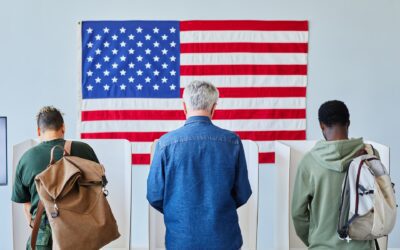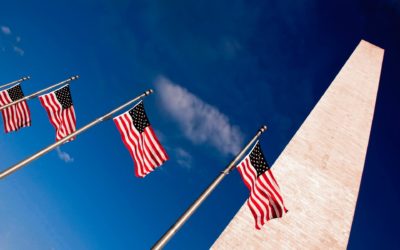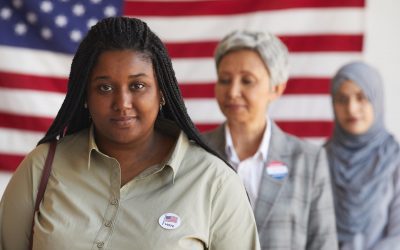Donald Trump’s influence on the Republican Party continues to shape America’s politics, even as the Democrats have taken control of the federal government and Congress. When polls accurately reflect the proportion of the white working class voters and their support for Trump in 2020, Democrats have only a 2-point lead in party identification and 43 percent still approve of his behavior — unchanged after the insurrection. Fully 58 percent are Trump Loyalists who strongly approve of Trump and another 12 percent Trump-aligned who “somewhat approve” of him but are very conservative or Evangelical
Trump’s base is angry about government restrictions on their freedom and believe they are fighting to save the “American way of life” from cancel culture and Black Lives Matter’s violent attacks on police and white people.
We conducted focus groups in March with Trump Loyalists in Georgia and Wisconsin and Trump-aligned, non-Trump conservatives and moderates in suburban and rural Georgia, Ohio, and Wisconsin. It took a long time to recruit these groups because Trump voters seemed particularly distrustful of outsiders right now, wary of being victimized, and avoided revealing their true position until in a Zoom room with all Trump voters — then, they let it all out.
And here are the conclusions that emerged from this new research:
- The Trump loyalists and Trump-aligned were angry, but also despondent, feeling powerless and uncertain they will become more involved in politics;
- Trump’s base saw Biden, as a white man, as not threatening, controlled by others, unlike Obama who represented everything Tea Party-Republicans were determined to fight;
- Even Trump’s base is curious about the extent to which they benefit from the American Rescue Plan (ARP) and Biden’s signature program, compared to Obamacare that they viewed as a new entitlement for Blacks and immigrants that must be stopped;
- The Trump loyalists and the Trump aligned are animated about government taking away their freedom and a cancel culture that leaves no place for white Americans and the fear they’re losing “their” country to non-whites;
- They were angered most of all by Black Lives Matter (BLM) and Antifa that were responsible for a full year of violence in Democratic cities that put white people on the defensive – and was ignored by the media;
- The Trump loyalists and those who are aligned rooted for the anti-lockdown protestors in Michigan and saw the violence and disruption of the legislature as justified. Some pulled back when the guns threatened innocent civilians, and more when their methods seemed to be losing support for the Trump movement;
- A handful of the Trump loyalists supported the January 6th insurrectionists, but most quickly concluded it was really Antifa or an inside job to make Trump supporters look bad. They normalized the insurrection, suggesting it was no different than the violence carried out by BLM and Antifa;
- They worry now that it is the government that has taken the initiative on the use of force, increasing their sense of powerlessness;
- The non-Trump conservatives and moderates bloc is marginally smaller but vocal in opposition to Trump’s direction and animated by his alienation of non-Republicans, the extremism, the 2nd Amendment and guns, and role of government and more.





